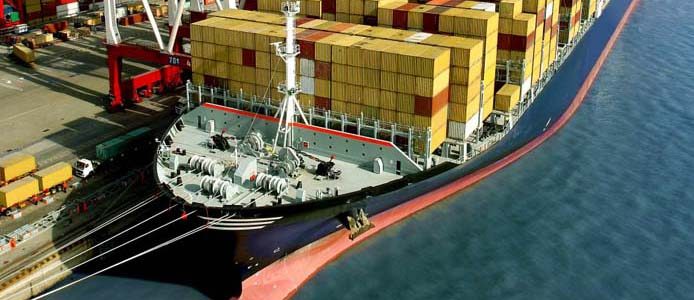- First Floor, 92-Razia Sharif Plaza, Fazal-ul-Haq Road, Blue Area, Islamabad
- +92-51-2344741 & 2344742
- 9AM - 6PM
Trade Related aspects of intellectual Property Rights (TRIPs)






The development of international trade can be adversely affected if the standards adopted by countries to protect intellectual property rights (IPRS) vary widely from country to country. Furthermore, the lax or ineffective enforcement of such rights can encourage trade in counterfeit and pirated goods, thereby damaging the legitimate commercial interests of those who hold or have acquired legitimate rights. The Agreement in Trade-Related Aspects of Intellectual Property Rights (TRIPS), negotiated in the Uruguay Round, therefore lays down minimum standard for the protection of intellectual property rights as well as the procedures and remedies for their enforcement. It establishes a mechanism for consultations and surveillance at the international level to ensure compliance with these standards by member countries at the national level.
In order to ensure that holders of intellectual property do not abuse the exclusive rights available to them, these rights are subject to a number of limitations and exceptions. The Agreement provides transitional period of five years for developing countries to bring their IPR legislation in conformity with the provisions of the Agreement.
IMPLICATIONS OF IPRS FOR INTERNATIONAL TRADE
The objects of intellectual property are creations of the human mind, the human intellect, thus carry the designation of “intellectual property”.
These include copyright, patents and industrial designs. Copyright relates to the rights of creators of literary, scientific and artistic works. Patents give exclusive rights to inventors; however, inventions can be patented only if they are new non-obvious and are capable of industrial applications.
Intellectual property also includes trademarks, service marks and appellations of origin. In the case of these property rights, the aspect of intellectual creation – although existent – is less prominent. However protection is granted to trademarks and other signs to enable manufacturers to distinguish their products or services from those of others.
IMPLICATIONS OF IPRS FOR TRADE
First, economic activity in most developed countries is increasingly becoming research- and technology-intensive. As a result, their export products – both traditional (such as chemicals, fertilizers and pharmaceuticals) and comparatively new (telecommunication equipment, computers, software) contain more technological and creative inputs that are subject to intellectual property rights. Manufacturers are therefore keen to ensure that wherever they market their products these rights are adequately protected, thus enabling them to recoup their R & D expenditure.
Second, with the removal of restrictions on foreign investment by a large number of developing countries, new opportunities are emerging for the manufacture in these countries of patented products under license or with joint ventures. The willingness of industries in industrialized countries to enter into such arrangements and to make their technology available, however, depends on how far the IPR system of the host country provides them an assurance that their property rights to technology will be adequately protected and not usurped by local partners making use of reverse engineering.
Third, the technological improvements in products entering international trade have been matched by technological advances that have made reproduction and imitation simple and cheap. In countries where laws on IPRs are not strictly enforced, this has resulted in increased production of counterfeit and pirated goods, not only for sale in domestic markets but also for exports.
OUR SERVICES
A rapid technological development and globalization of trade have resulted in the need for mechanisms providing speedy protection for new inventions and commercially valuable assets, such as trademarks and industrial designs in multiple countries.
With the ever-increasing importance of the protection of intellectual property rights, we have the knowledge and skill to provide the services in the following areas:
Registration and pleading:
- Patents
- Trademarks
- Copyrights
- Industrial designs
In addition to the above, we provide advice with respect to intellectual property protection and intellectual property management and valuation. One of our most prestigious clients to whom we are providing Trade Mark Registration Services is EMAAR Properties PJSC Dubai, UAE.

Turn Knowledge into Value
Related Services
- Antidumping Measures
- Subsidies and Countervailing Measures
- Safeguard Measures
- International Trade Management System (ITMS)
- International Trade Agreement Advisory (ITAA)
- Foreign Trade Development (FTD)
- Trade Related aspects of intellectual Property Rights (TRIPs)
- Data Protection & Cyber Security
- Foreign Investment Advisory Services